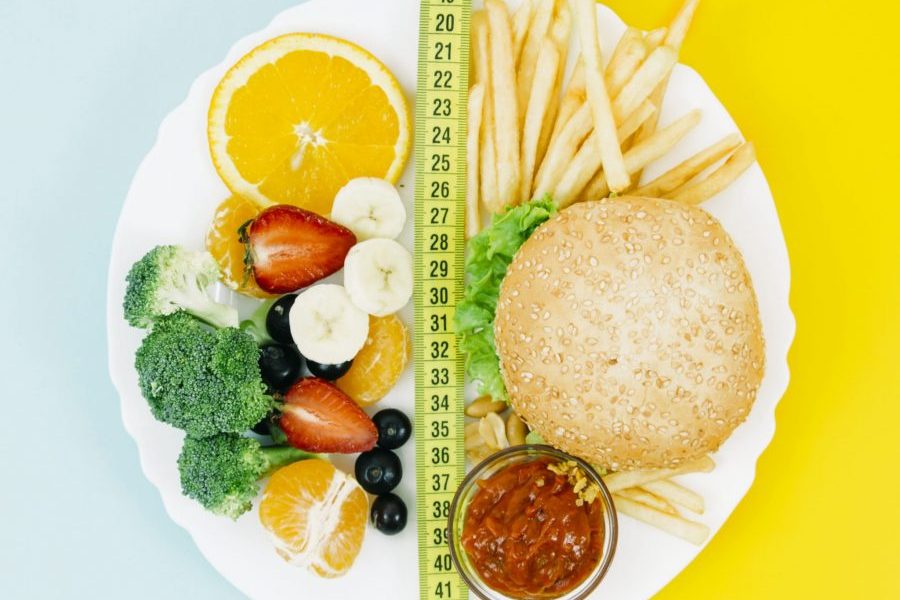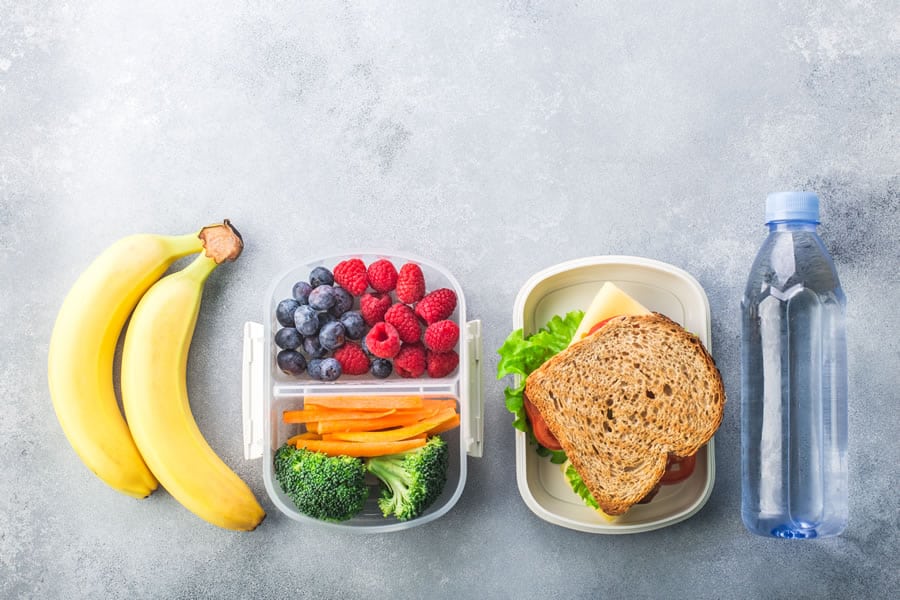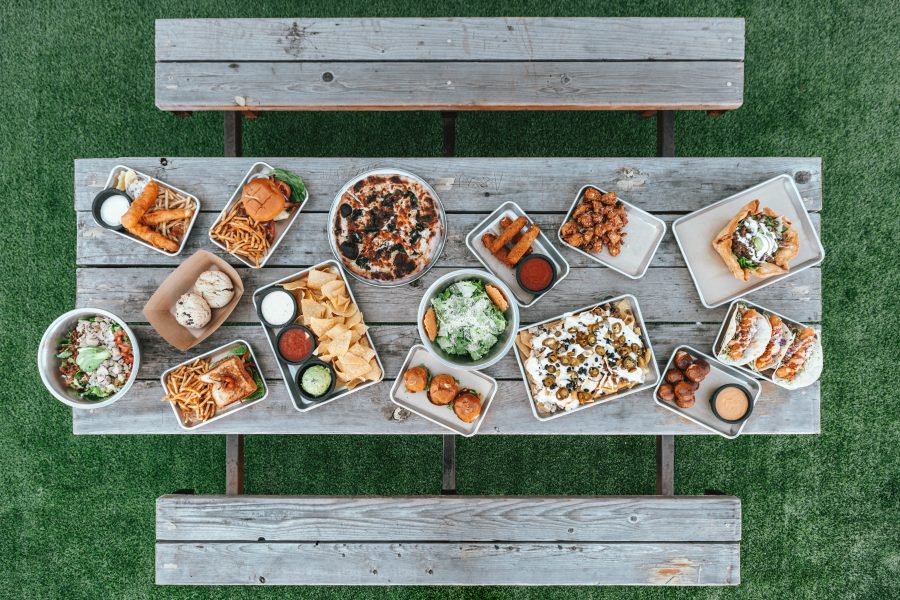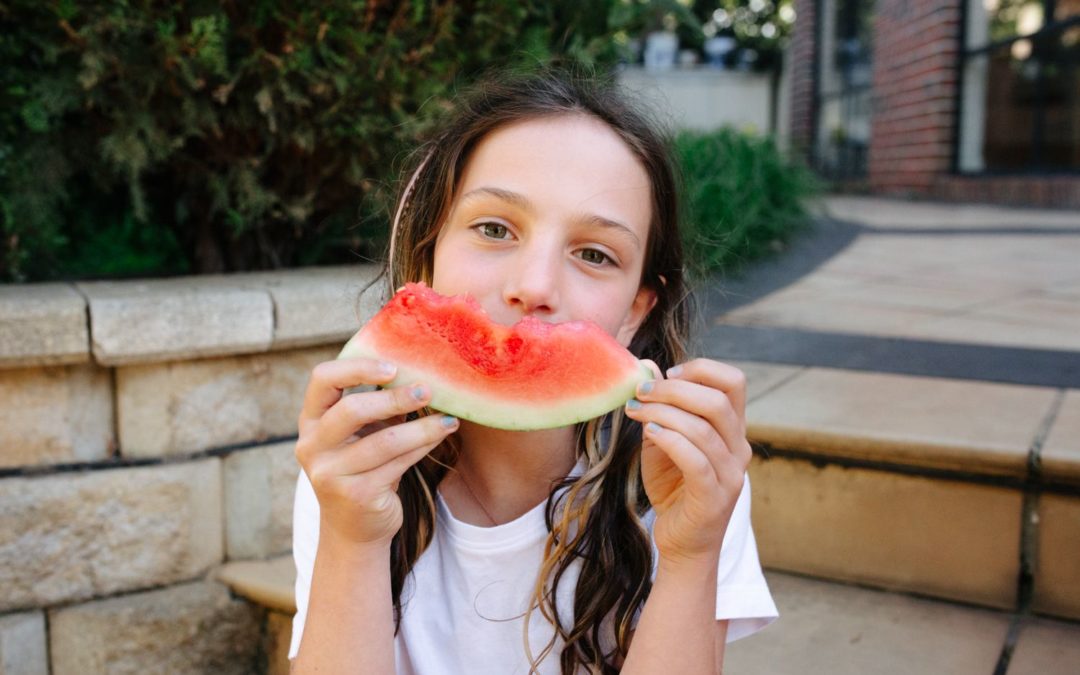My children (aged 8 and 10) and I were watching the ABC’s Back in Time for Dinner. If you have not seen it, it is a fascinating look at how food has changed over the decades. The series we watched started in the 1950’s and ended with a projection of future food. It was a fascinating insight into ‘how and what we eat’ has been influenced by gender roles, world events, technology, immigration and much more. We really enjoyed the show and the conversations that have come from it.
In the 1980’s diet culture really hit the scene, both in reality apparently and in the show. Children “are getting fatter” they explained and took a look at some of the common “restrictive diets’ of the times. In 2020’s there was a banana bread show down of a high sugar banana bread verses non sugar variety (both were a tad extreme in my book). Now the show is great and for us, the diet culture parts sparked interesting conversations between me and my children.
But it got me thinking….we sadly still live in a world filled with diet culture. So how can we help our children navigate this world?
What is diet culture and why is it dangerous?
Have you ever thought about the world we live in from a health perspective? How even well into the 21st century, our community is still obsessed with external beauty and body size?
Diet culture is a belief system than values thinness and equates body size to health and virtues. Diet culture thrives on restriction, and makes us feel guilty and ashamed for eating certain foods and not exercising enough. Diet culture is big business, worth billions of dollars. Diet culture is all about following food rules. And their marketing is amazing, prying on our self doubt, on making us feel that our bodies are not good enough. Inspiring us to judge ourselves and others on their external appearance. Convincing us that our eating habits and our body shape is as simplistic as what we eat and how much we exercise (when actually genetics, stress, medications, mental health, sleep and more are all factors). Diet culture does not value individuality and well being.
Obvious diet culture includes weight loss shakes, diet pills, meal replacements, bikini body gym programs, calorie counting, detox tea and so much more. But these days there is so much less obvious diet culture. The diets that are pretending not to be diets. The words to look out for are “but” and “should”. You should eat this and “all foods are good foods but don’t eat this everyday”, “all foods can form part of a healthy lifestyle but…”. The restriction that is pretending not to be restrictive like you can eat a ‘treat’ food but only on Thursdays (for example). Less obvious diet culture are jokes about weight gain and having to buy new clothes. It’s only seeing one body type on online workout programs. It’s the side comments of “have you lost weight, you look great”. And everything I mention above I have seen on social media just in this past week.
Diet culture is in our own self talk, because we have been raised in this society. It’s not wrong, or your fault, it’s the diet culture that has influenced us for our entire lives. It’s looking in the mirror and only seeing the faults, it’s wishing our bodies looked a certain way, it’s accidentally judging someone by what they or their children are eating. It’s the assumptions we make about a person, based on body weight. You might not think twice of a thinner person eating a donut but question a person in a larger body eating chips. That’s diet culture.
Diet culture leads us to mistrust our body. To make ourselves feel guilty about what we eat. To make exercising seem like a punishment. None of these are helpful for our mental health or leading a healthy lifestyle. Diet culture makes us believe that is we just weighed less, we’d be happier and better people. Diet culture tries to take our money. Food and body movement are meant to be celebrated, and used for self love not self hatred.
It leads us to believe that skinny is healthy and to judge people from the outside. Did you know that children as young as five have considered dieting and about one in two teenage females and one in three teenage males have tried dieting. Dieting increases the risk of eating disorders. Also teens that diet are more likely to have lower self esteem, feel less in control of their lives and feel less connected to their families.
So how can we try and protect our children from this world?
How do I help my child navigate this world?
Sadly we can’t change the world around us. And whilst we might be able to protect very young children, as children grow they will experience this world. But we can support them through role modelling and conversations.
First let’s talk about food. Try your best not to label foods. Foods are not good or bad, they are not sometimes or everyday and they are not treats or junk. Call food by it’s name “a carrot is a carrot” and “chocolate is chocolate”. Food is nutritionally different but morally the same. When we put foods up on a pedestal by overly restricting them or labeling them, we do it with the intent to eat less but usually we end up eating more but with a side of guilt. People worry that by removing the food labels and by allowing themselves or their children more access to different foods, it will cause them to continuously eating beyond comfortably full. When in reality, this might happen in the short term, in the longer term, we more likely to enjoy these foods and not be obsessed with them. A common question I receive is “but if we don’t label foods, then how will my children learn balance?” Well firstly labeling foods does not teach balance (in fact it can teach the opposite) and you are teaching them everyday through your actions. As a parent or carer, it is your decision how often you serve foods. Most meals and snacks, I serve foods from within the food groups. We have desserts a few nights a week (there are no rules to how often) and sometimes (what is sometimes, I’n not going to quantify it as we are all different, it might be everyday or sometimes a few times a week or other times twice in a day) we bake something sweet or add some bought chips or cookies to snacks. Everyone’s balance is different. And it is finding that happy medium between how often and what I am comfortable with serving to my family, but also making sure my children are not feeling and acting deprived. Sometimes changes as does the happy medium.
Food is food, full stop. Enjoy a variety of foods everyday. There is no need to have “cheat days” or reserve “treat foods” for specific occasions. How do you talk about foods? Do you often use negative or morally charged descriptors for certain foods? Think about both how you talk out loud and also in your mind.
Next let’s talk about bodies and just like how we all eat differently “body’s come in different shapes and sizes”. Think about what our body’s can do rather than what they look like. My body can….hug my children, go for walks with the dog, jump on the trampoline. Appreciate what your body does rather than what it looks like. And try to become more neutral about your body. It’s hard! Think about movement as ways to more our bodies in a way we enjoy and that makes us feel, rather than as punishment for eating or to look a certain way. Movement is great for our strength, for our mental and physical health, to be with nature, to connect with others and have fun. Celebrate what you are able to achieve with your body! Praise your children’s effort rather than comment on results or looks. Make exercise an activity together with your children.
Don’t comment on weight, yours or others. It is especially not helpful to make comments to children or adults like “Oh no thanks, I can’t eat that, look at my thighs, I need to lose weight”. Shift the focus off from weight loss or weight gain. Re-think why you exercise, rather than for the reason of letting loose over the weekend. If we can separate weight from health, we can all lead healthier lifestyles.
How do I talk to my children? (and negate some of the world’s messages)
I often get emails from concerned parents and teachers about what is being taught at some schools and whilst there is room for improvement, remember home is the most powerful influence.
In younger children: keep it simple and call food by it’s name and all bodies are different and diversity is to be celebrated. “Food is food. We enjoy colourful veggies. We also like ice-cream on hot days and baking cookies. Everyone eats in different ways and that’s great. What different foods from around the world can we think of?” Trust your children to respect their own hunger cues and fullness levels, and allow them to decide how much they want to eat. As the parent or carer, help your children explore foods simply by making a wider variety of foods available to them. In older children, you can go into a little more detail and start including some open-ended questions as discussions.
Reduce exposure to diet culture messages by attempting to avoid shows and ads that show this. Talk about and celebrate body diversity. Pay attention to how your children refer to their own bodies and the bodies of others and talk about the functionality of the body instead.
Acknowledge feelings, and don’t dismiss them. Some bodies are larger than others and that is okay. That the world sometimes says it is not, and that is not a helpful message. Speak about respecting your own body and listening to it. Advocate for exercise as fun, strength building and social interactions rather than changing body size. Our family like to use active transport (riding to school) as it saves us getting in the car which is great for the environment and we get to school refreshed after some fresh air. This may or may not work for your family, but think of enjoyable ways you can move your body as a family. In older children, have conversations about what topics they have noticed on social media or print materials as these platforms could easily expound diet culture messages and increase the pressure to conform to “beauty standards”. Help them see that there are a multitude of filters and software out there that create unrealistic images. Recognize also that in children, diet culture may not just be about weight loss. It might present as wanting to have muscle gains in boys, clear skin in puberty and ‘prettiness’ in girls.
Navigating diet culture is tricky. But you can role model creating a calmer relationship with food and your body to your children, to help them navigate and question the world.










